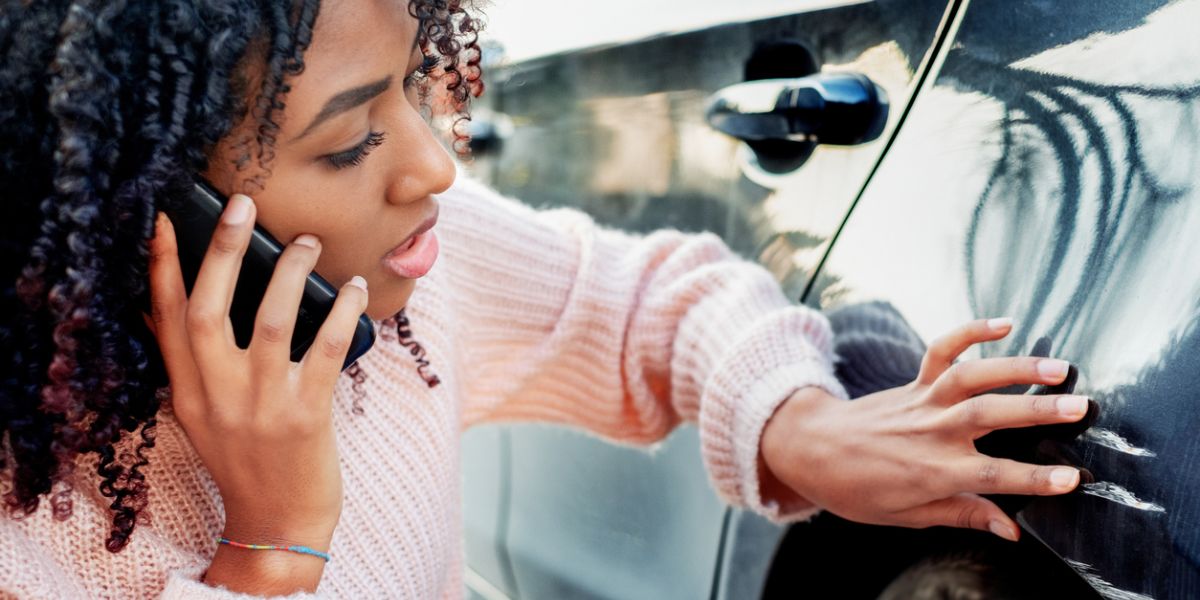What are single-vehicle accidents?
Single-vehicle accidents that involve striking a fixed or moving object are common and can be catastrophic. Debris from inclement weather, an object that has fallen from another vehicle, or an animal can obstruct the road. In these instances, a driver may not have the ability to slow down or avoid a collision, so they end up colliding with a moving object. Another situation that arises is when a driver collides with a fixed object. This occurs when the driver leaves the roadway and crashes into an object alongside the road, such as a utility pole, trees, curbs, or traffic barriers.
What happens during a single-vehicle accident?
During these crashes, energy from the vehicle is transferred to the object. Depending on the speed of the vehicle and size of the object, these single-car crashes can have devastating consequences. Common reasons for these accidents are distracted driving, poor road conditions, potholes, sun glare, flying objects from a vehicle, and swerving to miss an animal.
Who is responsible for a single-vehicle accident?
In many cases, the driver is held responsible for a crash with a fixed object. For minor accidents that do not involve injuries, the driver must file a claim with their insurance company to cover the damages if the property damage is over $500. Often, the collision coverage would pay for the damages if the driver hit a stationary object, such as a telephone pole. Comprehensive coverage would typically pay for damages associated with a moving object such as a deer in the road or debris that flew out of a vehicle because the accident was not as preventable and the situation was more out of the driver’s control. For moderate or severe accidents that involve injuries, the driver should contact an experienced attorney for guidance immediately. These accidents can be complex and are not always the fault of the driver.
When is the driver not at-fault for a single-vehicle accident?
Though at first the individual operating the vehicle may believe that they are 100 percent at fault for these types of accidents, there are circumstances when a driver is not responsible for an accident that involves hitting a stationary or moving object. For example, if debris or cargo falls from a vehicle or commercial carrier and causes an accident, the driver of the vehicle that the object originated from may be held responsible for the crash and liable for property damage and injuries.
Also, if a drunk driver makes a careless decision and swerves into a lane, resulting in another driver going off the roadway and hitting a traffic barrier, the drunk driver would be at-fault for the accident and liable for damages that they caused. Another situation is when a driver swerves and hits an object off the road to avoid an accident that is caused by a negligent driver, and the latter could be held at fault for damages. If the vehicle has a defect that causes the driver to hit an object, such as a brake malfunctioning and the driver hits a curb or road sign, the vehicle manufacturer may be liable for damages incurred as a result of the accident.
Sometimes a business or property places objects too close to the roadway and causes a driver to hit a fixed object or drive off the roadway to avoid an initial collision. In this instance, the driver may be able to file a claim against the business or homeowner’s insurance policy. For example, a driver might swerve to miss a dog that has left the home and is in the road, and as a result, the driver ends up off the road and crashes into the tree. The dog’s owner may be liable for the accident. Municipalities may also be held liable if they do not provide adequate lighting for drivers, making visibility a reason why a driver could not see an object in the road. A local government might also be responsible for a single-car crash if the road conditions are exceptionally poor. Reasons then that a driver is not responsible for a single-vehicle accident include:
● Another negligent driver
● Flying debris or object from another vehicle
● Poor road conditions, including poor design and damaged roads
● Road obstructions caused by another party’s property
● Motor vehicle defects
Should I contact an attorney if I have been involved in a single-vehicle accident?
Given that circumstances may vary widely when it comes to single-vehicle accidents, it is critical that the driver or a loved one of the injured party contact an experienced attorney about the accident. Another party may be held responsible and liable for the damages that the driver has incurred. Contact us today to have the first conversation.

